Laser Tattoo Removal in Barbados
Search and Compare the Best Clinics and Doctors at the Lowest Prices for Laser Tattoo Removal in Barbados

Find the best clinics for Laser Tattoo Removal in Barbados
No clinics available
Vietnam offers the best prices Worldwide
Price: $ 3

- Home
- Barbados
Compare Before & After Photos of _procedure_photos.phpLaser Tattoo Removal


Front view
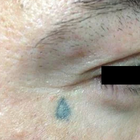
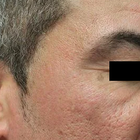
Half-side view
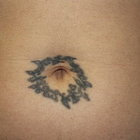
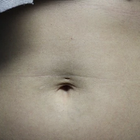
Front view

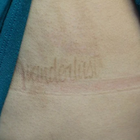
Front view
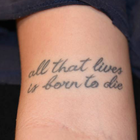
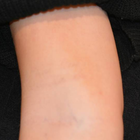
Front view
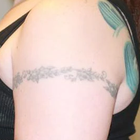
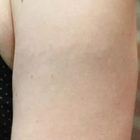
Full-side view
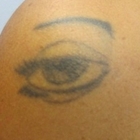
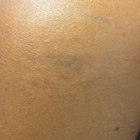
Front view
WHY US?
At Medijump, we're making medical easy. You can search, compare, discuss, and book your medical all in one place. We open the door to the best medical providers worldwide, saving you time and energy along the way, and it's all for FREE, no hidden fees, and no price markups guaranteed. So what are you waiting for?

Free

Best Price

Widest Selection

Risk-Free
What you need to know about Laser Tattoo Removal in Barbados
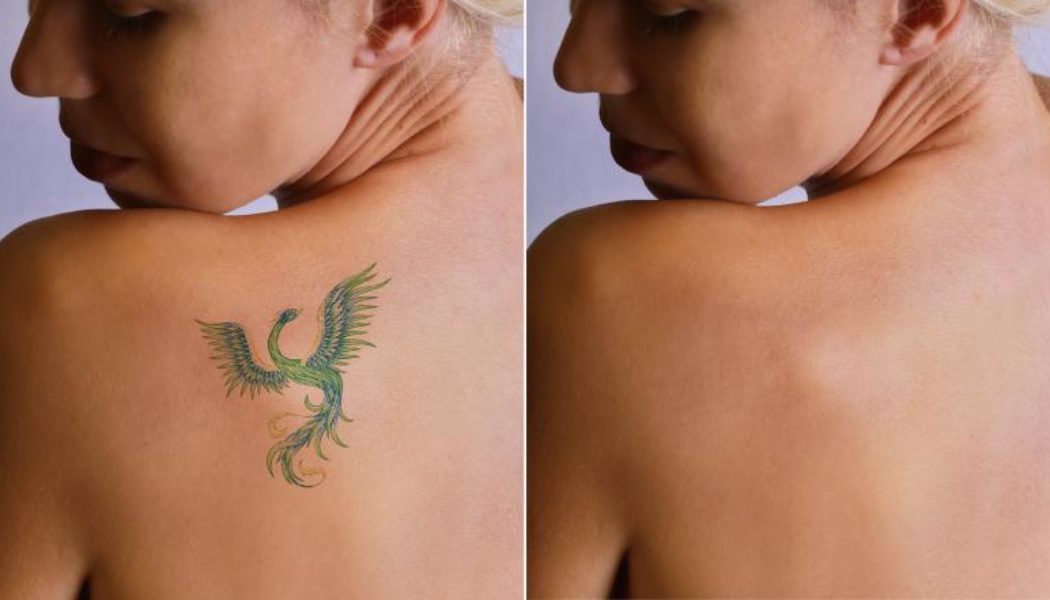
Laser tattoo removal is a technique to eliminate an unwanted tattoo with little to no side effects. It works by breaking up the pigment colors with a high-intensity light beam. You can undergo a laser tattoo removal if you regret having a tattoo, unhappy with the appearance of your tattoo, the tattoo causes infection, or you have an allergic reaction to the tattoo. Once you've done laser tattoo removal, your unwanted tattoo will be gone forever.
Grasping the notion that Laser Tattoo Removal is not a one-off activity, but instead encompasses an array of treatments distributed over multiple weeks, is crucial. Variables like the dimensions, hue, tattoo positioning, along with the person's general well-being determine the count of requisite sessions.
What is the cost of Laser Tattoo Removal in Barbados?
In Barbados, the Laser Tattoo Removal cost can greatly fluctuate. It hinges upon several considerations such as the size, emplacement, tattoo color, and the amount of needed therapy sessions. Other influencing factors are the laser technology utilized and the reputation of the clinic.
The majority of clinics in Barbados extend payment schemes and financing aids to render the process more financially manageable. Bear in mind, though, that Laser Tattoo Removal isn't typically included in medical insurance coverage as it's deemed a beauty-related procedure. Irrespective of the expenditure, it is vital to give precedence to first-rate care and the proficiency of the healthcare staff over cost-effectiveness.
What does a Laser Tattoo Removal Procedure Involve?
The process of Laser Tattoo Removal entails directing particular wavelengths of laser light on the tattooed part of the skin. A highly specialized laser is chosen depending on the colors present in the tattoo for carrying out this technique. The light pulses penetrate the skin's topmost layers to reach the tattoo's pigment. This energy from the light leads to the fragmentation of the tattoo ink into minute particles, which are gradually flushed out by the body's immunity system.
Most people do not need anesthesia, but you can ask for a topical or local anesthetic from your doctor. During the procedure, you will have to wear protective eye shields. Then, your doctor or technician uses a laser to bring pulses of intense light to the top layers of your skin and only the tattoo pigment will absorb this light. Depending on the size, color(s), and age of your tattoo, you might need more than one treatment session.
How Long Should You Stay in Barbados?
You can leave Barbados after your tattoo removal procedure. However, it may take several treatments to completely remove the tattoo. Given that everyone reacts distinctively, the process might necessitate anywhere from 3 to 10 visits. The interval between each treatment is around 7 weeks to allow the treated area enough time to heal. You are free to retreat to your home, or a place of your choosing, in between these sessions. This sequence persists until your tattoo is completely removed. Nevertheless, it is critical to resume your journey to Barbados for each forthcoming Laser Tattoo Removal.
What's the Recovery Time Like?
You will feel pain and discomfort for around a week, but your skin will completely heal in around six weeks. You should be able to go to work as long as you do not feel any pain or discomfort that interferes with your life.
Right after every session, you may observe minor swelling and a reddish tint on the manipulated area. These indications normally wane within a short span that can range from a few hours to two days and can be tamed with chilled packs and popularly accessible pain relievers. Evading exposure to sunlight and demanding activities in the initial few days is of utmost importance to forestall probative issues.
What sort of Aftercare is Required for Laser Tattoo Removal Procedures in Barbados?
Your doctor will give you aftercare instructions; make sure to follow the instructions. Keep the treated area clean, do not soak the area, and try to avoid popping blisters. If the treated area itches, apply hydrocortisone cream. Avoid smoking as it can reduce the effectiveness of laser tattoo removal by around 70%.
The treated region should also be protected from the sun and covered with a high SPF sunscreen because the skin will be more susceptible to UV deterioration. Additionally, avoiding activities that could result in significant sweating or close contact with the area of the skin that is receiving treatment is advised. You must avoid the impulse to pick or scratch at the treated area if you want the skin to heal properly. Finally, maintaining effective healing and general health requires drinking plenty of water and eating a diet that is nutritionally balanced.
What's the Success Rate of Laser Tattoo Removal Procedures in Barbados?
Laser tattoo removal is the most effective tattoo removal treatment with a success rate of over 95%. It's important to understand that when discussing tattoo removal, the term "effectiveness" typically refers to the degree of tattoo fading rather than complete tattoo removal. The depth, type, and concentration of the ink, the tattoo's colour, as well as the recipient's skin features and overall health, can all have an impact on the final design.
Are there Alternatives to Laser Tattoo Removal Procedures in Barbados?
Laser Tattoo Removal has evolved into a highly effective strategy for eliminating tattoos, but you're afforded various other alternatives if Laser Tattoo Removal does not align with your requirements. Intense pulsed light (IPL) therapy, for instance, where light pulses are deployed to dissolve the tattoo ink, could be a viable proposition particularly for larger tattoos. However, for heavily inked or deeper tattoo locations, IPL might not yield the desired outcome.
Dermabrasion is yet another alternative. It's a process that employs skin 'sanding' to eliminate the surface and middle skin layers. Compared to laser treatments, dermabrasion can be less comfortable and requires a more prolonged healing duration. In certain instances, it might also be viable to surgically remove the tattoo with a scalpel, but be prepared for the potential of scarring. Therefore, when deciding on the best course of action, it's important to discuss your unique requirements and expectations with a specialist.
What Should You Expect Before and After the Procedure
Before the Laser Tattoo Removal, there will be a discussion with the expert regarding your health history, the treatment information, and your anticipated outcomes. The area on which the tattoo is located must be hygienic and devoid of any ongoing skin issues. A topical anesthesia may be applied during the session for your comfort. The feeling you might experience when the laser is used could be likened to the feeling of a rubber band being flicked against your skin.
Post-treatment, the tattooed section may look inflamed and red, and it could feel a bit warm to the touch and tender. These symptoms should diminish over a few days. It is vital that you adhere to the follow-up care guidelines given by the clinic to ensure the best healing process and outcome. Generally, this requires cleanliness of the area, avoiding direct sun, and abstaining from activities that can irritate the skin. Regular check-ups of your healing process with your expert can assist with timely detection and management of any potential post-treatment issues.
What are Potential Risks of Laser Tattoo Removal?
Laser Tattoo Removal carries some side effects and risks, such as:
- Infection
- Hypopigmentation and hyperpigmentation (treated skin becomes significantly darker or lighter than its surroundings)
- Scarring, bleeding, swelling, and blisters
It's important that you get proper treatment by a reputable doctor to avoid these side effects and risks.
Whilst the information presented here has been accurately sourced and verified by a medical professional for its accuracy, it is still advised to consult with your doctor before pursuing a medical treatment at one of the listed medical providers
No Time?
Tell us what you're looking for and we'll reachout to the top clinics all at once
Enquire Now

Popular Procedures in Barbados
Prices Start From $28

Prices Start From $6,002

Prices Start From $278

Recommended Medical Centers in Barbados for procedures similar to Laser Tattoo Removal

- Interpreter services
- Translation service
- Religious facilities
- Medical records transfer
- Medical travel insurance
- Health insurance coordination
- TV in the room
- Safe in the room
- Phone in the room
- Private rooms for patients available
Laser Tattoo Removal in and around Barbados
Introduction
Barbados is an island country located in the Caribbean region of North America. This vibrant island nation boasts an abundance of astounding natural beauty, beautiful weather, smashing nightlife, beautiful architecture, and welcoming people. Beyond its white sand beaches and dazzling turquoise bays, Barbados is also an emerging medical tourism destination. It is known as a leading destination for IVF, rehabilitation, and a wide range of surgical and non-surgical treatments. Hospitals and clinics in the country are equipped with modern technology and high-quality services. The doctors and specialists are highly-trained and international patients can enjoy the country’s beauty and tranquility, while undergoing a medical procedure and holistic therapy at the spa. This allows patients to be at their optimum relaxation when they undergo medical treatment, making the recovery period easier and the success rate higher.
Popular Cities and Regions in Barbados
Bridgetown, Barbados’ UNESCO World Heritage-listed capital, is filled with old colonial architecture and vibrant culture. Visitors can go to the beautifully restored Barbados Synagogue, learn more about cricket in the Cricket Legends of Barbados, explore the history of the country in Barbados Museum, and admire the beauty of the neo-Gothic parliament. Those who want to experience the tranquil beaches and the calm Caribbean Sea should visit Holetown. Located 13.5 kilometers from Bridgetown, this beautiful city offers the perfect blend of history with modern-day living. It is lined with world-famous restaurants and museums. The main draw of the city is its beaches, and most tourists come to witness the remarkable sea turtles in their natural habitat, try out paddle boarding, or see the man-made coral reef. Aside from Holetown and Bridgetown, other popular cities are Bathsheba, Oistins. And Speightstown.
Transport in Barbados
International visitors will arrive at Grantley Adams International Airport as the airport serves the US, Canada, Central America, and Europe. A great way to travel around the country is by bus, which is the most affordable mode of transportation. Visitors who need a more flexible option can opt for a taxi. Taxis in the country are not metered, but the fares are regulated by the government based on the distance traveled and the cost is reasonably priced.
Visas in Barbados
Barbados allows citizens of most countries, including Australia, the US, all EU countries, and the UAE, to visit and stay without a visa for up to 180 days. Nationals of other countries, such as Libya and Egypt, need a visa before arrival. All visitors must have a valid passport for at least 6 months.
Weather in Barbados
Located in the tropics, Barbados experience hot sunny days and tropical rain showers during the summer months (mid-April to November). The cooler season (December to mid-April) has dry and less humid weather, making it the best time to visit the country.
Additional Info
- Local Currency: Barbadian dollar (BBD) is the official currency in Barbados. 1 USD will get you approx. 2 BBD.
- Money & Payments: While you still need some Barbadian dollars on hand, some businesses will accept US dollars and major credit cards. Tip 10% to 15% for taxis and in restaurants. Tip porters 2 BBD per bag and tip cleaning staff at your discretion.
- Local Language: English is the official language of Barbados.
- Local Culture and Religion: Christian is the predominant religion. Religious freedom is established by law, and other religions, such as Islam, Hinduism, Buddhism, and Judaism, are present.
- Public holidays: Some of the public holidays celebrated in Barbados are New Year’s Day, Errol Barrow Day, National Heroes’ Day, Kadooment Day, and Independence Day.
Popular Searches
- Plastic Surgery in Thailand
- Dental Implants in Thailand
- Hair Transplant in Thailand
- Breast Augmentation Thailand
- Gastric Sleeve in Thailand
- Gender Reassignment Surgery in Thailand
- Laser Hair Removal in Bangkok
- Botox in Bangkok
- Dermatology in Bangkok
- Breast Augmentation in Bangkok
- Coolsculpting in Bangkok
- Veneers in Turkey
- Hair Transplant in Turkey
- Rhinoplasty in Turkey
- Stem Cell Therapy in Mexico
- Rhinoplasty in Mexico
- Liposuction in Mexico
- Coolsculpting in Tijuana
- Rhinoplasty in Korea
- Scar Removal in Korea
- Gastric Sleeve in Turkey
- Bone Marrow Transplant in India
- Invisalign in Malaysia
- Plastic Surgery in the Dominican Republic
- Tummy Tuck in the Dominican Republic
- Plastic and Cosmetic Surgery in Poland
- Rhinoplasty in Poland
- Hair Implant in Poland
- Dental Implants in Poland
- IVF in Turkey